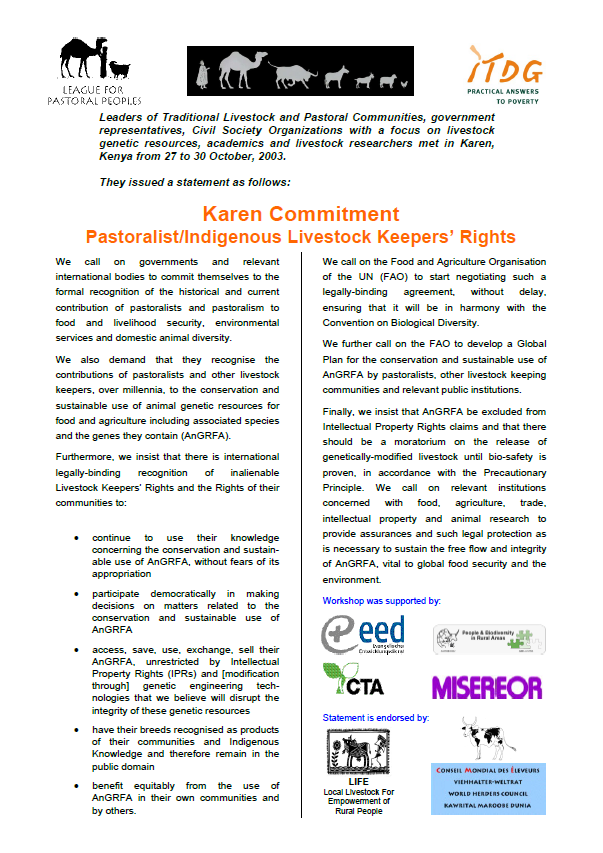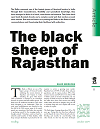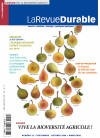Leaders of traditional livestock and pastoral communities, government representatives, civil society organizations with a focus on livestock genetic resources, academics and livestock researchers met in Karen, Kenya on 27–30 October, 2003. They issued a statement calling on governments and relevant international bodies to recognize the contribution of pastoralists to food and livelihood security, environmental services and domestic animal diversity and to conserving and sustainable use of animal genetic resources. They called for an international legally-binding recognition of inalienable Livestock Keepers’ Rights and the Rights of their communities.
 Title: The Karen commitment: Pastoralist/Indigenous Livestock Keepers’ RightsAuthor: LPP / League for Pastoral Peoples and Endogenous Livestock Development and Local Livestock for Empowerment (LIFE) Network / Intermediate Technology Development Group / 2005Description: Leaders of traditional livestock and pastoral communities, government representatives, civil society organizations with a focus on livestock genetic resources, academics and livestock researchers met in Karen, Kenya on 27–30 October, 2003Format: ZipPages: 1Download document
Title: The Karen commitment: Pastoralist/Indigenous Livestock Keepers’ RightsAuthor: LPP / League for Pastoral Peoples and Endogenous Livestock Development and Local Livestock for Empowerment (LIFE) Network / Intermediate Technology Development Group / 2005Description: Leaders of traditional livestock and pastoral communities, government representatives, civil society organizations with a focus on livestock genetic resources, academics and livestock researchers met in Karen, Kenya on 27–30 October, 2003Format: ZipPages: 1Download document



